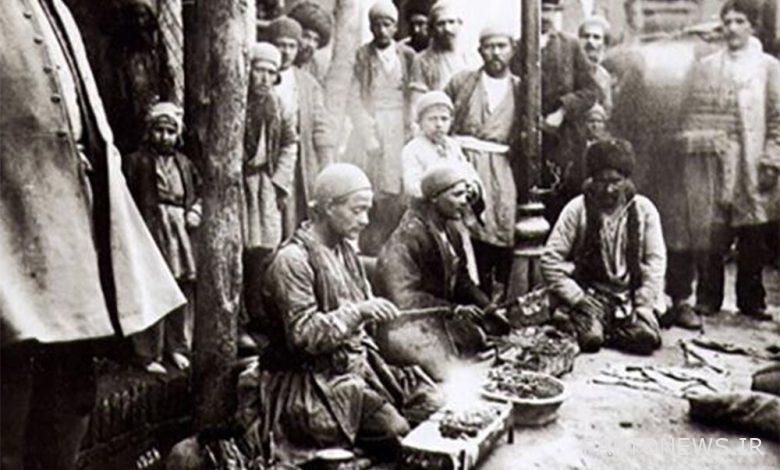Closure of some businesses during Ramadan/Obtaining homework from the scholars of Karbala and Najaf – Mehr news agency Iran and world’s news

According to Mehr reporter, “Mirror of Kindreds” is the title of a series of radio shows narrated and directed by Mehrdad Eshghian, which is a journey into the world of Ramadan rituals in Iran. This is a 30-part collection of the productions of the General Directorate of Performing Arts of Radio, which is published in Mehr News Agency with the suggestion and support of Ayub Aghakhani.
Karamet Roudsaz, Mohammad Yeganeh, Mohammad Agha MohammadiHassan Taseiri, Hormoz Sirti, Bahadur Ebrahimi, Ahmed LeshiniMandana Mohseni, Razia Momivand, Mandana Aslani, Masoumeh Azizmohammadi are present as actors in this series, and other actors of the radio series “Aineh Oohan” are also author: Soheila Khodadadi, researcher: Nasser Malayan, Effector: Mohammadreza Ghobadifar, sound engineers: Pirouz Sadraei and Mohsen Javadi, producer and editor: Nahid Guderzi.
twenty and the ninth The “Mirror of the Gentiles” episode, with a duration of 25 minutes and 46 seconds, deals with the rituals of the people of this city during the holy month of Ramadan with a trip to Tehran.
The 29th day of the “Mirror of Nations” journey begins like this:
“Time passes so quickly that sometimes U.S We don’t even know when we came and when should let’s go. Time passes so quickly that my heart does not come to say Today is the twenty-ninth day of the holy month Ramadan. Just a few hours rest left until the end of this holy month reach. There is no other way, you have to surrender to the passage of time. But OK Thank God again our life in vain Waste We didn’t give and as long as we could from this month with blessing We took advantage. In the heart of every journey, we reach a concept of life. Thank God that aside servants May God bless you with the purity of the hearts of these people one bite bread We ate halal. Today is the twenty-ninth of the month Ramadanthe twenty-ninth day of the journey to the heart of rituals and drawing And the customs of Iranians in the month of Ramadan. A journey full of lessons and full of mystery. God What is more beautiful than repeating your name? So only and only with your hope.”
On this day, “Haj Amu” and “Ismail” introduce us to the Ramadan rituals of the people of old Tehran.
In old Tehran, people would wake up approximately 3 hours before the morning call to prayer and start cooking, and some of them were literate and started to recite the dawn prayer. From the moment when the sound of prayer and prayer was heard little by little There is excitement and noise in the city. Finally, a unified city bang And it was shouted.
In old Tehran, the first person who woke up for dawn had to wake up others as well, so he would hit the neighbor’s wall with his fist. this punching It continued until all the people of the city woke up. this drawing particle for direct object “punchingThey said.
In this section, the narrator mentions the vow of “15th halwa”, which is one of the customs of the people of Mazandaran during the holy month of Ramadan, during which women offer sugar, tea, dates and coal to mosque They took it and brewed tea there for breaking the fast and gave it to the fasting people.
Also, in the past, in the city of Sari, people used to break the fast for the prisoners.
In the continuation of this day of travelTalaat Khanum” tells us about the Ramadan rituals of the people of Tabriz.
In Tabriz, on the first days of the holy month of Ramadan, children go home to break the fast Father And their mothers would go. Breaking the fast started from the second half of the holy month of Ramadan. In the old days, the people of Tabriz used to wake each other up Magic They were knocking on the neighbor’s wall.
At the dawn tables and breaking the fast Tabrizi women put all kinds of food, soup and cookies.
According to “Khan Amo” from the book “Old Tehran” Jafar Shahri cites that in old Tehran, with the beginning of the holy month of Ramadan, especially the first half of the month, some businesses classes Like cooks lunch market Such as Cheloui and Daisy Paz and coffee maker With the beginning of Ramadan, it was closed, and some works, such as Hakim, medicine The sales of women, dentists and salmani were sluggish. In contrast to this business, some such as bathhouses, war makers, watchmakers, Quran sellers, etc icon and photo, prayer, Sajjad And the shroud and this is also their market Thriving Was.
In old Tehran, depending on the season of Ramadan, food and edibles It was different, in winter fatty foods and full of meat And in the summer, low-fat and low-meat foods were consumed.
In old Tehran, near the evening of the first night of Shawwal, people from the moment of sunset until one o’clock in the night Gone On heights looking for vision halal They were months. If the month is halal by consensus vision Tomorrow could have been announced as Eid and they would have celebrated, otherwise they would have waited for the telegram to arrive from Karbala and Najaf, and if no telegram arrived, they would have sent a telegram to the scholars of Karbala and Najaf themselves and earned the assignment.

